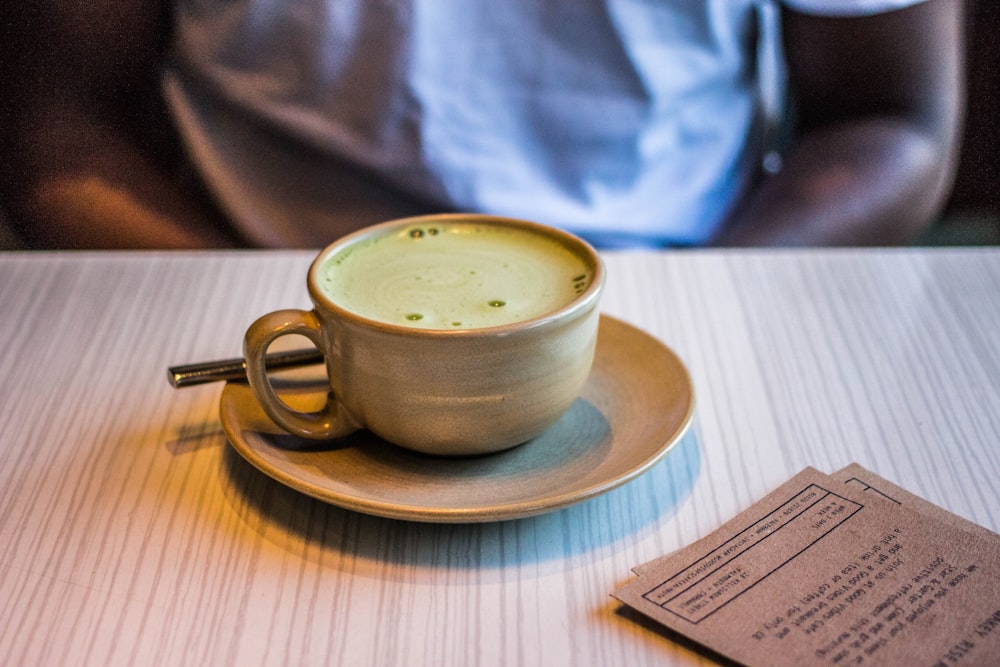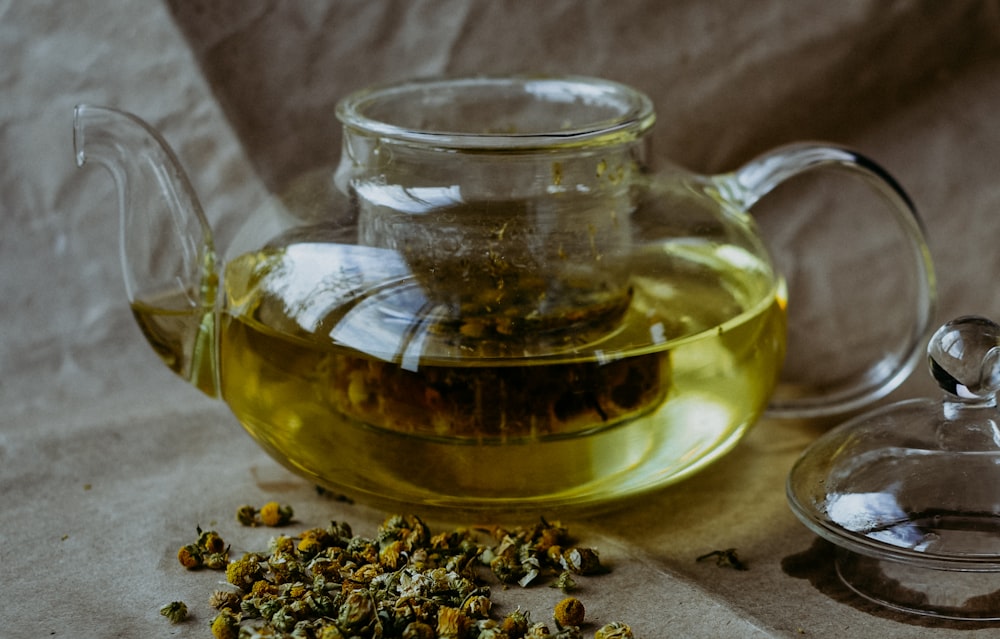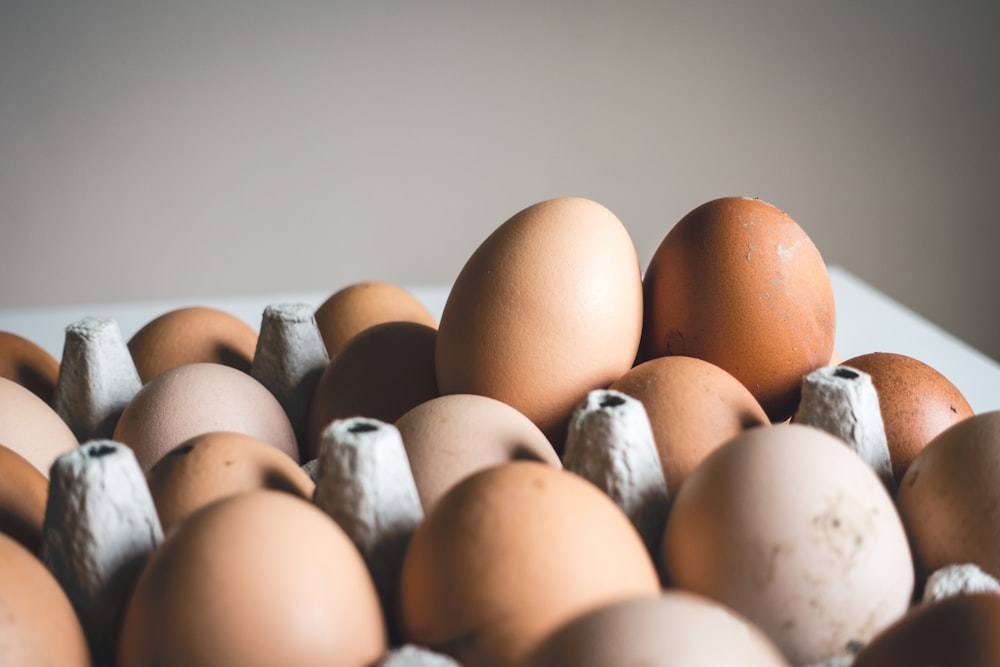Best Food and Drink for Stress Management

Are you feeling overly stressed out these days? If so, you’re certainly not alone. We’re living in a stressful time. There’s no doubt about that. Some of us have lost our jobs, and are worried about how to maintain our lifestyle. Others of us have been completely glued to our televisions, with news headlines streaming into our consciousness that makes us feel fearful, weary, and exhausted. Our smartphones are constantly dinging us with notifications, making us feel the need to be on all the time. Some of us have developed sleep issues, which stresses out the nervous system to no end.
Wherever you fall in this equation, you’ll be happy to know that just by making a few healthy dietary changes, you can manage stress in pleasurable ways. What better way to do it than by eating good, healthy food? In this article, we’ll take a look at the best foods and drinks to help alleviate stress in the body and mind.
Stress less with matcha tea
You may already know that green tea is really good for you. But, did you know that it can actually help you manage stress? And some varieties are more effective than others. The variety I tend towards for stress reduction is matcha. If you don’t know about matcha green tea, here’s the lowdown:
Matcha comes from Japan. It comes in powder form, which you can buy at most stores nowadays. While matcha does contain some caffeine, the high levels of a compound called L-theanine balances it out. It’s the high L-theanine levels which makes matcha such a powerful stress-reliever.
I find that sipping a matcha latte rather than a coffee latte makes the perfect treat when you’re treating yourself at a cafe. Matcha lattes are great with regular milk or nut milk, as well as a little honey or lucuma powder. Make them at home for a budget, DIY stress-relieving comfort drink.

Relax with chamomile
Chamomile isn’t new. The flower has been used for centuries to relax the body and mind. It’s a soothing and mellow tea that calms the nerves and soothes the senses. Instead of drinking a sugary coffee drink in the afternoon, you may want to consider switching to chamomile tea. While not as tasty, if you do it for a month or so, your taste buds will get used to the change. And your nervous system will thank you for it.

Stress-relieving cacao hot chocolate
Do you love the smell of hot cocoa simmering on the stove? I know I do. But, those conventional hot chocolate packets are no good for your stress levels. Why? Because they’re full of sugar. Raw cacao on the other hand, is a healthy substitute. It contains more than three hundred compounds, all of which are good for you. There’s magnesium, calcium, iron, zinc, omega-6 fatty acids, beta-carotene, amino acids, and a bunch of vital phytonutrients.
The anandamide compound in cacao has natural mood boosting qualities, while its tryptophan has naturally occurring antidepressant properties. Cacao has a load of antioxidants, too, all of which help calm the body and mind. I like to make cacao hot cocoa. But, you can also make energy balls, energy bars, fudge, ice cream, shakes, etc. Add it to smoothies, oatmeal, yogurt, cereal, and overnight oats.
Calm yourself with coconut water
I love drinking coconut water. This love harkens back to my days living on the Big Island of Hawaii. Coconut water is so refreshing, and so good for you. But, how can this tropical drink reduce stress levels? Well, it has to do with all those electrolytes, to be sure. And it also has to do with the naturally occurring vitamins and minerals like calcium, magnesium, riboflavin, potassium, manganese, and vitamin C.
If you feel as if you don’t drink enough water, you might want to try coconut water. It has more flavor, and it’s incredibly good for hydration. In my experience, being chronically dehydrated can make you feel stressed. All the nutrients in coconut water promote muscle relaxation and better sleep—two things that lead to stress reduction. If money were no issue, I’d probably drink coconut water every day. Instead, I supplement with it a couple times a week.
Best foods for stress management
Most nutrient dense foods are also good for stress management. When your body’s on toxic overload, it’s really difficult not to feel stressed out. Chronic inflammation, chronic dehydration, malnutrition—these all lead to a stress overload. But, if you eat the following foods, you can avoid all that. Here are my favorites:
Blueberries
This simple berry is really beneficial to your nervous system as it has neuro-protective properties. The high amount of antioxidants found in blueberries also helps relieve stress because they prevent chronic inflammation. These flavonoid antioxidants may even give your mood a boost. So be sure to eat blueberries regularly if you’re prone to feeling low. Blueberries are a truly versatile treat and can be eaten in so many ways. Oatmeal with blueberries, blueberry pie, blueberry smoothies, blueberry smoothie bowls, blueberry jam—you get the idea.
Sweet potatoes
Sweet potatoes are a staple in my household. When baked and slathered with grass-fed butter or coconut oil and a pinch of sea salt, sweet potatoes are sweet and delicious. They’re really nutrient-dense, and great as a whole food stress-reducing food. So, what’s in a sweet potato?
Well, they’re one of the healthiest carbs you could possibly eat. And their high vitamin C and potassium content make them naturally good for relieving stress in the body. If you’re looking to reduce stress via diet, take out the refined carbs and eat sweet potatoes instead.
Garbanzo beans
Who knew these yellow-hued beans could help you relax? They’re a great plant-based source of protein, as well as a nutrient-dense food for health. Garbanzo beans, also known as chickpeas, are full of B vitamins. And your nervous system needs these essential B vitamins to function properly. They also contain potassium, zinc, magnesium, copper, manganese, and selenium.
I also like garbanzo beans as a food source of stress relief for its L-tryptophan. L-tryptophan is something you need in order to make neurotransmitters that help improve your mood. These legumes are also incredibly versatile when it comes to creating plant-based recipes. You can make chickpea soups, you can make hummus from chickpeas, and you can even roast them in the oven with a bunch of exotic spices. Have fun eating more of these calming legumes. They’re cheap, plentiful, and good for you.
Eggs
Eggs are yet another staple in my house, and yours too, I’m sure. They’re a great source of protein, relatively inexpensive, and so versatile. You can cook them up in so many ways. Scramble them, poach them, cook them sunny side up, make an omelette, enjoy them hardboiled—the possibilities are endless!
You’re probably wondering, how can eggs reduce my stress? The answer lies in the nutrient choline. It also lies in an egg’s wide variety of vitamins and minerals, as well as amino acids. Eggs are so good for you on so many levels, and yet so simple. This is what I love about eggs. This morning I enjoyed two hard boiled eggs with a drizzle of olive oil, and a pinch of sea salt and ground pepper—simple and tasty!

Fatty fish
Salmon and other fatty fish are some of the healthiest foods you can possibly eat. Not only are they good for your heart, your brain, and your skin, they’re also good for your nervous system! How do you think fatty fish helps when it comes to stress release? You guessed it!
It’s their omega-3 fatty acid content, of course. Many health experts agree that people who don’t eat enough omega-3 fatty acids have higher levels of depression and anxiety. The other essential stress-relieving nutrient is vitamin D. Fatty fish are one of the few sources of vitamin D. And just like omega-3 fatty acids, low levels of vitamin D are linked to stress, anxiety, and even depression. So, enjoy a good piece of fish. Your nerves deserve it!
Nuts of all varieties
Nuts are an excellent source of B vitamins. And B vitamins help you stress less. The magnesium found in nuts is also a factor. Anything with magnesium helps alleviate stress and balance the nervous system. You don’t need much. A handful each day is all it takes to reap the stress-reducing benefits.
Citrus fruits
Do you love lemons, limes, oranges, and grapefruit as much as I do? I really indulge in them during the winter and early spring, as their vitamin C content is necessary for staying healthy throughout these cold months. It’s also great for stress. We need adequate amounts of vitamin C in our system for a healthy nervous system. If you’re not likely to get your vitamin C via food, then I highly recommend taking a good vitamin C supplement.
Let’s all stress less this year. I have no doubt in my mind, you deserve it!
